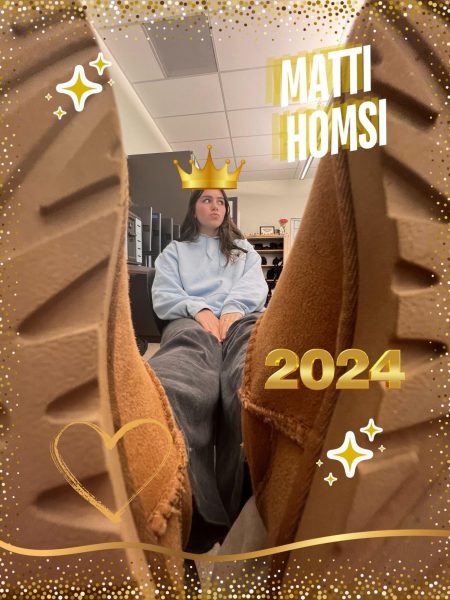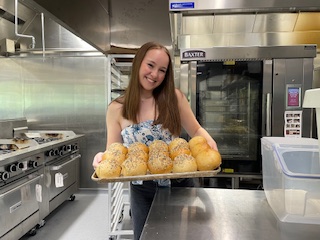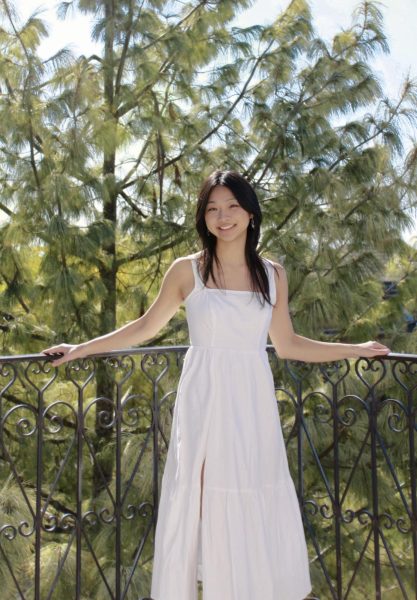LHS students adapt to new cultures
Netherlands, Germany, China, Iran, Australia, Finland, Brazil, Indonesia and Guatemala; these are just some of many countries that Lincoln students have immigrated from. While some students have become friends with and share classes with these students, many don’t know much about the experiences these students have had and the emotions they have felt at school.
According to the American Immigration Counsel, 25,028 immigrant children who’ve moved from all over the world now call Oregon their home. Immigrant students in Lincoln’s community shared their experiences moving, why they moved and how they feel at school with the Cardinal Times. While some enjoy the education and acceptance they’ve experienced here, others prefer the culture and education of the country they moved from.
The Reasons Students Moved
The majority of the immigrant or migrant students came to the U.S. because of their parents’ job or work.
Lincoln freshman, Jorge Raposo, was one of these students.
“I moved because of my Dad’s job for Intel,” said Raposo who moved from Brazil in 2015. Other reasons for immigrating included lack of political equality or access to education from their countries of origin.
Junior Ella Mashroutechi, though born in Kansas City, lived in Iran for most of her life, and recently moved back to the U.S. to have a better opportunity to learn. Mashroutechi says she told her parents she “didn’t want to go to college [in Iran], and [she] wanted to go to an American high school. They thought about it, and thought it was just a good idea for the whole family to move.”
Mashroutechi didn’t see opportunity in Iran to get a good education and job, so she wanted to move to the U.S. where there are more opportunities for everyone to learn.
Acceptance from Lincoln and Portland Community
Many of the students said they were accepted warmly by their new classmates when they first moved to Portland. However some found the initial move difficult and making friends was hard.
Sophomores Joy and Faith Cathalina, twins from the Netherlands, thought people “were very nice.”
“After [someone] first approached me, more people came,” said Joy Cathalina.
Rafa Baker had a different experience. She moved from Indonesia when she was 5 years old, and said she felt like an outsider.
“I got used to it, obviously. I was in ESL, and I didn’t really make friends easily because they thought it was weird that I had an accent,” Baker said.
Ella Mashroutechi had a similar experience.
“People were nice in general, but it was really hard making friends,” she stated.
Some students noticed they were treated differently than others even by teachers.
“Teachers always want me to talk about immigration,” said freshman Lea Kuehnis, who immigrated from Finland. “They always call on me [and say], ‘You can probably relate to immigration’.”
The United States Versus Student’s Home Countries
After spending time in the United States, these students all have different opinions on how they like the U.S., especially compared to the countries they moved from.
Mashroutechi says that she likes the U.S. better because “Iran is the Islamic Republic, and here we have a lot of rights, and there are written protocols, where the government can’t just arrest you for no official reason…. There are rights that protect you, and there is no such thing in Iran.”
Mashroutechi implies that the U.S. can be a safer country than many because of the 1st Amendment in the Constitution, which provides people with the freedom of speech, expression, and religion.
Although the U.S. can be a better place to live for some, others don’t agree. Some students say they would rather live in the country they moved from.
Faith Cathalina from Amsterdam prefers The Netherlands.
“My family and friends are there, and [Dutch] is my main language,” said Cathalina.
Not everyone had a strong opinion on what country they liked better. Some students couldn’t decide where they would like to live more, including Freshman Matea Vidackovic.
“I miss my friends in Germany, but I also like my friends here,” said Vidackovic.
All of the students at Lincoln came from different places with their own expectations. Now their experiences in Portland have also shaped their lives. Kuehnis provided a message looking back at how she first felt when she got here.
“I expected to be lonely and not understand anyone, and I found out that I didn’t understand anyone but I wasn’t lonely.”








